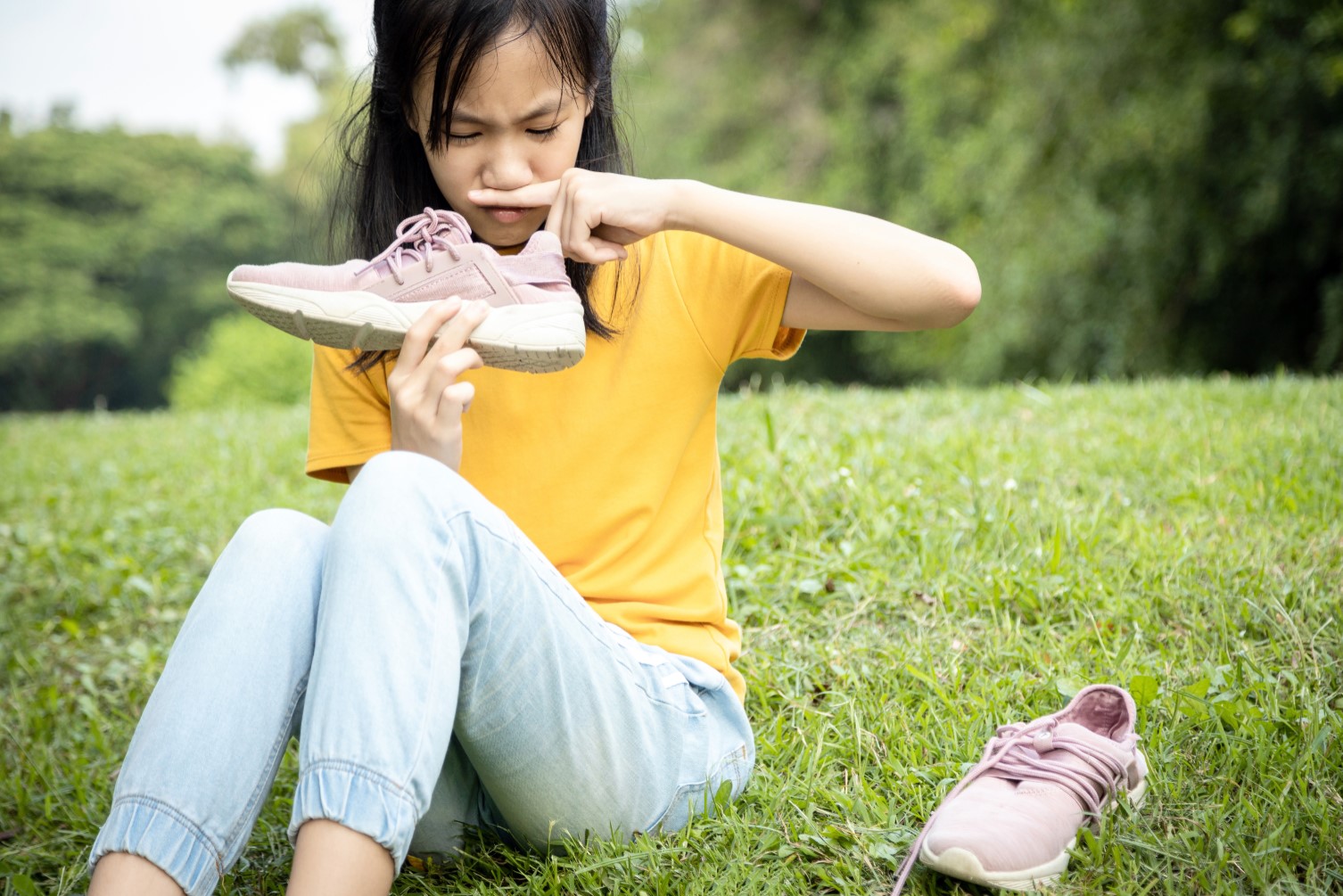
Sweaty feet can be uncomfortable, but they’re something that most children experience at one time or another. Most adults have sweaty feet at times, too. In the majority of cases, sweaty feet aren’t anything to worry about, but it is important to know what to do about sweaty feet to keep your children’s feet clean and healthy.
Want to know what causes sweaty feet? Keep reading.
If you’ve ever noticed that your or your child’s feet get much sweatier than the rest of your body, you might be wondering whether that’s normal, or if there’s an underlying condition that you should be aware of. In fact, feet are naturally sweatier than the rest of your body for a number of reasons.
First of all, it’s a fact that your feet have more sweat glands than any other part of your body. This naturally means that your feet will produce more sweat per square inch than anywhere else. Additionally, your feet are generally working more often than other parts of your body. If you’re standing, walking, running or doing anything else that involves you being on your feet, they’re supporting your weight, which generates heat and therefore sweat.
On top of that, feet are often well insulated with our shoes and socks, meaning that they don’t get as much ventilation as other areas of our bodies. This means they don’t cool down as well, so they need to sweat more, but it also means that the sweat itself doesn’t dry or evaporate as easily. Particularly if you’ve been active or the weather is warm, your feet can become sweatier than usual. These are all common reasons for your feet being sweaty that aren’t anything to worry about.
There are also other reasons why your or your child’s feet might be sweaty which may need addressing. Hyperhidrosis is the medical term for excessive sweating - i.e. sweating a lot without an obvious cause such as high temperature or physical activity. This condition can affect all areas of your body, or it may be confined to a single area, such as your feet. Unfortunately, there’s not always an identifiable cause for hyperhidrosis, although you may find that treating other underlying conditions may reduce the impact of sweaty feet.
Having sweaty feet may also be a sign that your child’s shoes or socks aren’t breathable enough to give their feet the ventilation they need. It’s recommended to always wear shoes made of a breathable material, and the same goes for socks. If your child has sweaty feet, make sure they’re wearing polyester or Alpaca wool socks. These materials wick moisture away from the foot to keep the feet cool and dry. Your child should always wear a new, clean pair of socks each day to avoid the build up of sweat, dirt and bacteria.
It’s also important to avoid damp feet whenever possible. After baths or showers, make sure to dry your child’s feet thoroughly, including in between their toes. You should also do this if their feet get wet outdoors - in the rain, for example - and never put a wet pair of socks back on. The same goes for your child’s shoes. It’s best to let any wet shoes dry out completely before they’re worn again, as warm, damp spaces are breeding grounds for bacteria and fungus. Wet feet can sometimes be mistaken for sweaty feet, and both situations can lead to conditions such as athlete’s foot or nail fungus if prolonged.
Babies are not immune to sweaty feet, but there is usually a very simple explanation for your baby having sweaty feet. One thing to remember is that babies are still learning how to manage their bodily functions, one of which is temperature regulation. If your baby is a little on the warm side, they might sweat more than you’d expect - because their bodies are still getting used to managing their temperature on their own.
One disadvantage babies have in the field of temperature regulation is that they have little control over their environment. While an adult who is too hot might open a window, take off a jumper or turn down the central heating, a baby can’t do anything about it. The best they can do is grizzle and fuss and hope they’re getting the message across to the adults in the room. So if your baby’s feet are sweating, it could be a sign that they’re too warm. If there are no other symptoms to suggest anything else, try taking off a layer of your baby’s clothes or swaddling. If they’re not walking yet, it’s also a good idea to try taking off your baby’s shoes and socks to allow all those sweat glands in their feet to cool them down.
It might also be that your baby’s temperature is being affected by something outside of their environment. Fevers, for example, can make your baby sweat - so if your baby’s sweating is connected to other symptoms, it’s worth speaking to a doctor about possible causes. However, sweating can also be caused by something as simple as a bad night. Fussy and grizzly babies can work up quite a sweat with all that crying - in which case the sweating should ease once your baby has calmed down again.
Author: Click Consult, published 21-03-2023.